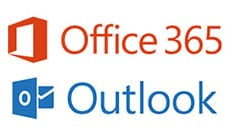 In an ongoing effort to keep K-State’s systems and services safe, malware filtering has been activated for K-State’s email. The filter protects the mail system and individual mailboxes from malicious software by blocking attachments that are commonly used to transmit viruses or malicious software.
In an ongoing effort to keep K-State’s systems and services safe, malware filtering has been activated for K-State’s email. The filter protects the mail system and individual mailboxes from malicious software by blocking attachments that are commonly used to transmit viruses or malicious software.
The malware filtering is applied to all K-State email: Office 365 webmail and Outlook. All incoming and outgoing email is filtered. Go to File Attachment Types Blocked By K-State Email to view a complete listing of the filetypes currently being blocked, along with common file extensions for the specific filetypes.
How do I know an attachment has been blocked?
The K-State mailbox that is sending or receiving a blocked attachment receives an email notification that an attachment has been blocked. The body of the original message remains intact and is delivered along with the notification about the blocked attachment.
How can I send or receive file types that are being blocked?
- OneDrive — Sharing files through OneDrive avoids issues pertaining to blocked filetypes for attachments. OneDrive offers secure file storage, versioning, and collaboration. OneDrive comes with 1 TB file storage that can be synced across all your devices. Files can be shared with anyone, inside or outside of K-State through OneDrive’s file sharing feature.
- Canvas — Files can be uploaded, downloaded, and shared using Canvas. Attachments can be uploaded in several areas of Canvas including: Files, Group Files, Discussions, Assignments, Conversations, and Messages.
- Password-protected archive file — Place the file into a password-protected archive file, then attach it to the message. There are a variety of Windows and Macintosh programs that can create these files, including WinZip and StuffIt. Include instructions in your email telling the recipient the archive type and contents, and let the recipient know the password for the protected file. Note: Password-protected archives should NEVER be used to transmit data that is confidential or protected, because password-protected archives are easy to decode by determined hackers.
No hacking can get around the malware filtering. Renaming the file extension will not work. The scanning software can detect the blocked filetypes, even when the file is renamed.
To learn more about blocked attachments at K-State, go to the Blocked Attachments webpage.